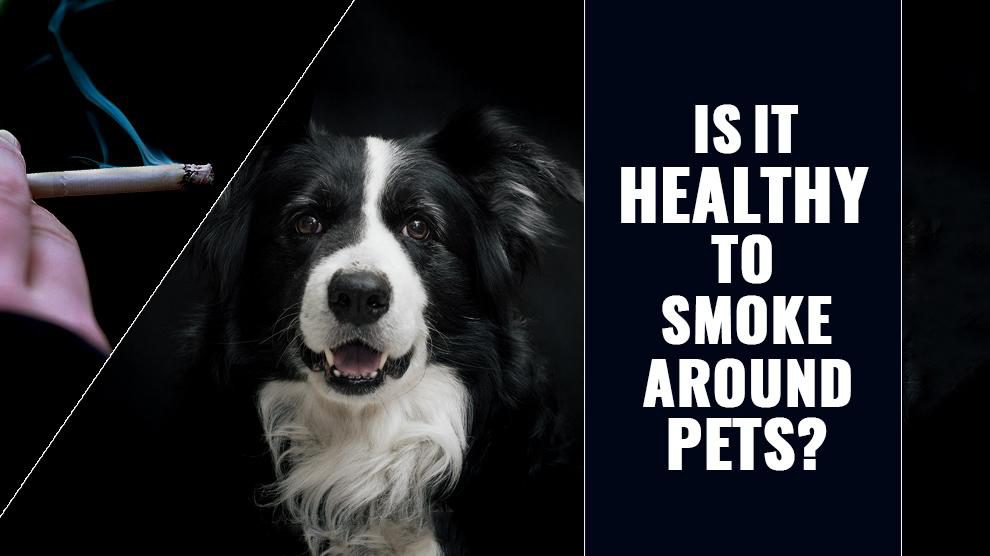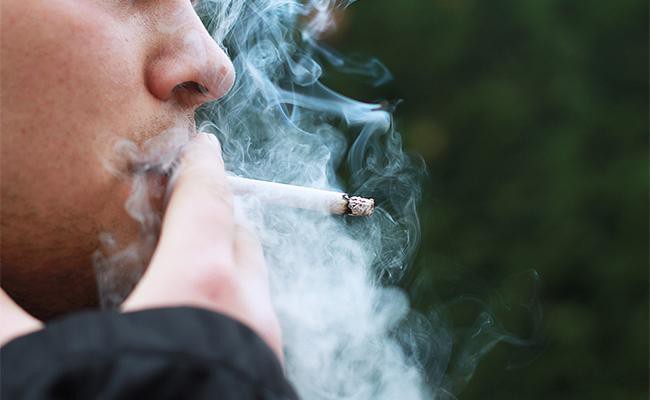Dog Pregnancy Calculator And Timeline
Have you ever wondered – if smoking around your pets perilous to their health? Secondhand smoke and pets do weigh relatively.
The detrimental effects of smoking have been known for some time now.
Although the dangers for smokers are evident, second-hand smoke (Passive smoking) has emerged as a real threat to non-smokers.
Second-hand smoke has been linked to an ever-lengthening list of diseases in children, such as sudden infant death syndrome, ear infections, asthma etc.
Sadly, those suffering from diseases incited by passive smoke exposure are innocent victims of a smoker’s family members who share a home with a smoker: It extends to their pets as well.
Veterinary oncologists have found that second-hand smoke contains more than 70 mutagens (substances that damage your DNA) and carcinogens (substances that cause cancer), which lead to a variety of chronic and often incurable diseases.
There are at least 4000 chemicals found in cigarette smoke. They altogether causing numerous adverse health issues for both people and pets.
If you can’t muster the motivation to renounce smoking for yourself, then you might find inspiration in knowing that the dangers that smoking pose to you are the same dangers that they pose to your kids and pet.
Second-hand smoke harms more your kids and pets than you think. This is not some usual piece of epidemiological number-crunching. It involves some real, meticulous research work by several researchers’ for a good many years.
Why Is Secondhand Smoke A Problem For Pets?
Second-hand smoke (SHS) (also called environmental tobacco smoke) is a mixture of these two types.
Mainstream smoke – The exhaled smoke by a smoker
Sidestream smoke – Smoke that wafts off the lighted end of the product (cigarette, cigar, or pipe)
According to the Centers for Disease Control and Prevention (CDC), there are approximately 4,000 chemicals, of which 70 have confirmed carcinogenic activity many more are suspected carcinogens) and over 250 are toxic in other ways.
The chemicals include Arsenic, Benzene, toluene (found in paint thinners), Beryllium (a toxic metal), 1,3–Butadiene (a hazardous gas), Cadmium (used to make batteries), Chromium (used to make steel), Ethylene oxide, Nickel, Polonium-210 (a radioactive chemical element), Vinyl chloride etc.
Passive Smoking isn’t only harmful to people; it’s harmful to pets too. The sad reality is that your smoking could damage the health of your favorite furry friend, cuddly bunny or loving finch.
But just as quitting smoking reduces your risk for early death and disease, quitting smoking now may also help your pets by steer clear of the passive smoke exposure. Some may prefer vape pens to cigarettes.
Colorado State University research about second-hand smoke demonstrated that dogs living in smoking environments had an increased incidence of nasal cancer.
Interestingly, the length of a dog’s nose is also associated with the type of cancer incurred from inhaling second-hand smoke.
Long-nosed dog breeds are prone to nasal/sinus cancer while short-nosed dogs often get lung cancer. Here’s why.
The incidence of nasal tumors for long-nosed dogs (Labradors, Greyhound, German shepherd, Dobermans, etc) is 250% higher because they increased surface area in their nasal canals that trap inhaled particles.
Short-nosed/ medium nosed dogs (Boxers, Bulldogs etc) aren’t effective “trappers” and allow more inhaled particles and carcinogens to reach the lungs. And they develop more lung cancer than their long-muzzled friends.
What about cats? Cats that live in smoky surroundings are at greater risk of developing lung cancer, which makes sense because cats have short noses.
Unrelated to the length of the nose, felines that inhale second-hand smoke also have a higher incidence of lymphoma and Hemangiopericytoma.
Cats exposed to smoke are about 2 times more likely to develop lymphoma cancer. This rate increases with the duration the cat lives in a smoky household.
Second-hand smoke can also cause skin irritation and eye problems in pets. Pets with pre-existing respiratory conditions also are likely to be aggravated by second-hand smoke.
They can also exacerbate other pre-existing pet diseases. For e.g., Dogs or cats with a chronic cough from the collapsed trachea or kitty asthma are made worse.
Kittens have 2–4 times the risk of aggressive oral cancers and health issues if they live with smokers.
What Is Third-Hand Smoke (THS)?
For the passionate people who still smoke and don’t feel browbeaten enough, here’s something new to worry about;
Even if you choose to smoke outside of your house, thinking that you’re keeping your kids and pets away from second-hand smoke, you’re still exposing them to toxins and potentially cognitive deficits.
When someone smokes, nicotine and other toxic tobacco compounds accumulate on clothes, furniture, walls, hair, fur, drapes, bedding, carpets etc. It can stay there several months and can be even more toxic if it combines with other indoor pollutants.
These residues get saturated on surfaces over time and are called third-hand smoke. They have shown detrimental effects on animals and cells in laboratory studies.
According to a study in the British Medical Journal in 2005, even when smokers take their smoking habits outdoors, the residual chemicals, essentially particulate matters that get deposited inside the home from smoke is not fully removed.
The level of smoke pollutants in a smoker’s home is five to seven times higher than non-smoking households.
Is Third-Hand Smoke Bad For My Health (Or My Kids Or My Pet)?
Studies suggest that exposure to these micro-aggressors can have an impact on non-smoking adults and children when they swallow or touch objects that contain third-hand smoke.
Pets lick chemical residues from their fur when they groom themselves. Exposure to third-hand smoke has been linked to liver, lung and skin problems.
Studies suggest that exposure to these micro-aggressors can have an impact on non-smoking adults and children when they swallow or touch objects that contain third-hand smoke.
Pets lick chemical residues from their fur when they groom themselves. Exposure to third-hand smoke has been linked to liver, lung and skin problems.
In fact, pets have an even greater risk of smoking-related disease than children if smokers don’t wash their hands after holding a cigarette. The toxins left behind on human hands can easily wind up in a dogs or cat’s fur.
Studies show that dogs exposed to large amounts of THS have significant changes to their lung tissue over time. These changes range from scarring of the lung tissue to precancerous (even cancerous lesions) or fibrosis.
According to the American Journal of Epidemiology, Dogs in smoking households have a 60% higher risk of lung cancer.
And kittens, which spend a good portion of their time grooming themselves, often ingest the chemical residues when they groom or lick their coats and can become seriously ill.
American Academy of Pediatrics has already warned about the risk of third-hand smoke for kids. Especially babies and toddlers who are more likely to have their faces in furniture and crawl on rugs.
Do Not Fritter Away One Of Your Cat’s Nine Lives By Smoking
While the health effects of third-hand smoke remain mostly undetermined by research, we should not disregard that risks likely exist.
Common sense tells us that many diseases and conditions may be linked to second-hand and third-hand smoke.
The best thing you can do is to avoid exposure altogether.
Our pets trust us that we will take care of them, and they repay us with their unconditional love. We consider pets are an important member of the family. For some of us, they’re our only family.
Make the right decision – Consider quitting – if not for your health, think about your family’s health and your pets’ health.





















